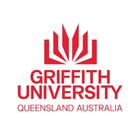Master of Professional Engineering in Mechanical Engineering
Master of Professional Engineering in Mechanical Engineering
The Master of Professional Engineering is for aspiring engineers who want to obtain accredited qualifications to practise as an engineer in Australia and overseas, or for existing professional engineers to move into a different field of engineering. The program focuses on the knowledge and skills required to design solutions and…
Categories
COURSE DESCRIPTION
The Master of Professional Engineering is for aspiring engineers who want to obtain accredited qualifications to practise as an engineer in Australia and overseas, or for existing professional engineers to move into a different field of engineering. The program focuses on the knowledge and skills required to design solutions and manage engineering projects in a holistic way. For those from a science, environmental science or computing background who want to change careers to become an engineer, the Graduate Diploma of Engineering Science provides a pathway to the Master of Professional Engineering.
My career opportunities
The Master of Professional Engineering will provide the engineering professional practice and research skills that lead to recognition as a graduate engineer in Australia. The qualification will be recognised internationally through the Washington Accord of the International Engineering Alliance.
Mechanical Engineering
Mechanical engineering is one of the broadest engineering disciplines including the design, analysis, manufacture and maintenance of mechanical systems. This major is built on a strong foundation of theory and reinforced by practical experience – all underpinned by our ethos of learning by doing. You will be involved in the development and use of new materials and technologies, as well as design and analysis using advanced software and computer systems.
REQUIREMENTS
To eligible for admission to the Master of Professional Engineering, a student must hold:
- a three-year Engineering degree (for example, Bachelor of Engineering Science or Bachelor of Engineering Technology or equivalent); OR
- a three-year post-secondary Diploma of Engineering from a recognised tertiary institution in a cognate discipline AND a completed 40 credit point Masters Qualifying Program (Engineering) from Griffith College; OR
- a Griffith University Graduate Diploma of Engineering Science
- AND must have a GPA of no less than 5.0 on a 7-point scale (or a weighted average mark of 65 per cent).
Applicants with a three-year Bachelor degree with some physics and first-year mathematics (for example, Bachelor of Science in mathematics or science) should complete the Graduate Diploma of Engineering Science (4201) and then articulate into the two-year Master of Professional Engineering.
English language requirements apply to International applicants and other applicants whose previous study was undertaken in a language other than English. The minimum English language requirements for such applicants for entry to this program are as follows: A minimum overall band score of 6.5 on IELTS (Academic) with no sub-score of less than 6.0; OR a minimum score of 575 on TOEFL; OR an internet-based (iBT) TOEFL score of 79 (no sub-score less than 19); OR no score less than 3+ in each skill of the ISLPR (conducted by ISLPR Language Services only); OR a minimum overall score of 176 (no score less than 169) on C1 Advanced (formerly Cambridge Certificate in Advanced English) or C2 Proficiency (formerly Cambridge Certificate of Proficiency in English); OR an overall score of 58 in the Pearson Test of English (Academic) with no score less than 50.
EDUCATIONAL INSTITUTION
Griffith University is ranked in the top 2% of universities worldwide and strives to create a brighter future for all by prioritising innovation and social impact. We are committed to providing international students with quality education, guidance, and support. With Australia’s most awarded teachers, Griffith University offers a full suite of undergraduate, postgraduate and research degrees in areas including architecture, construction, and planning; business and government; criminology and law; education; engineering, IT and aviation; humanities, languages and social science; medicine, dentistry and health; music and performing arts; science and environment; visual and creative arts.

